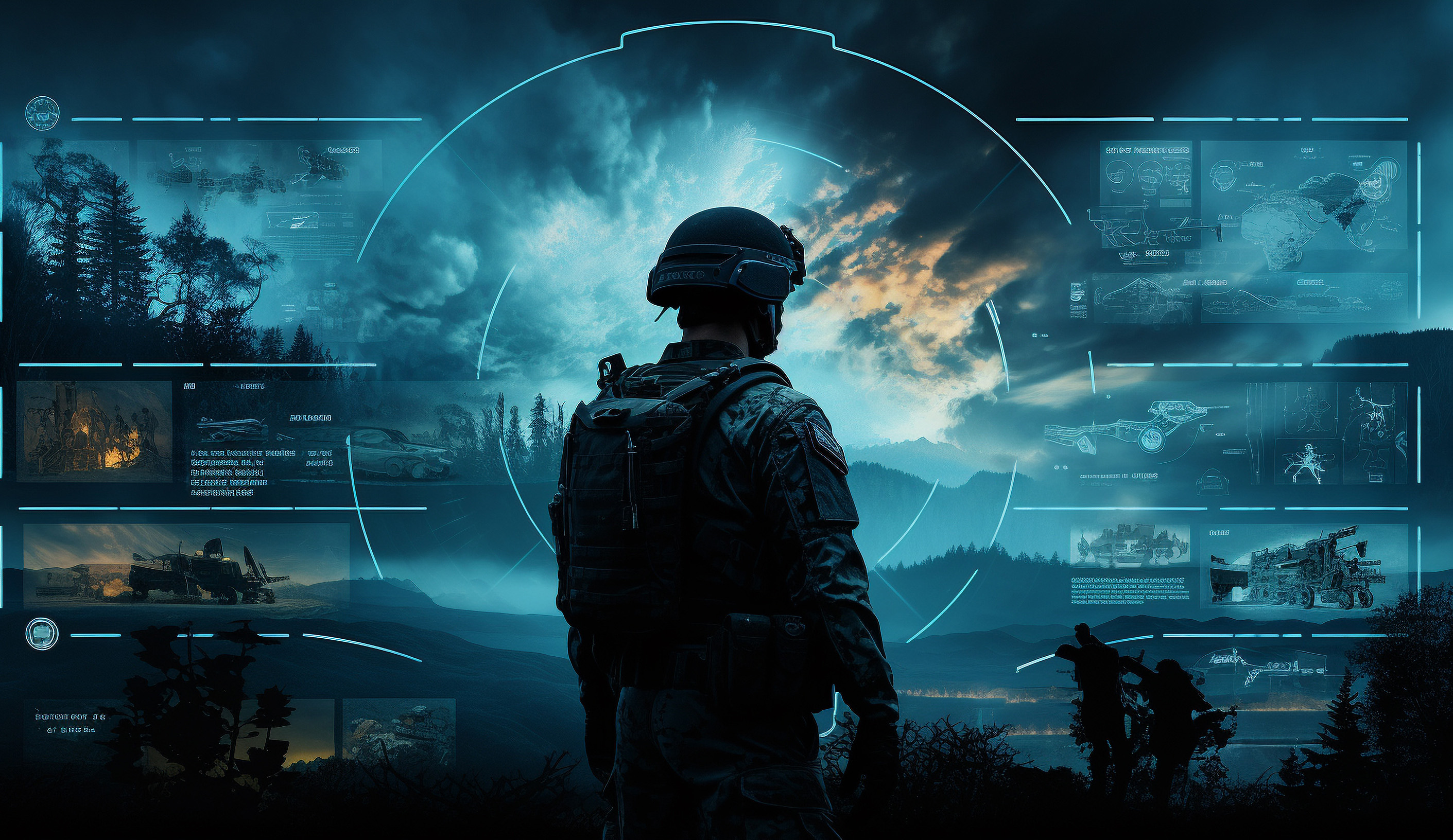This article is an opinion; it will likely be read with enthusiasm and agreement by some and strongly disagreed with by others. What matters most is that it generates healthy discussion surrounding the professional development and employment of enlisted Australian Defence Force personnel, specifically those bearing the influential and respected rank of Warrant Officer.
Warrant Officer Ryan Wilson, CSC
Why are Warrant Officers Crashing the Command and Staff Course?
In 2022, I completed the Australian Command and Staff Course (ACSC) at the prestigious Australian War College. The course cohort consisted of approximately 180 domestic and international military personnel and Defence civilians, of whom only four were Warrant Officers (WOFFs) selected from across the three Australian Defence Force (ADF) services. The presence of WOFFs on ACSC is notable because the course is designed to ‘prepare selected officers and officials for command and staff appointments in integrated, joint and single-service environments at the O5 and O6 level’. Therefore, some readers may wonder why WOFFs attend the course and how it better prepares them for future employment within the ADF—surely a WOFF will not fulfil an O5 or O6 appointment … right? These are all very fair questions, and on week one, day one at the War College, I had them unexpectedly posed to me by an inquisitive Army Major.
Initially, I found the interaction somewhat confrontational, believing that the individual did not think I deserved to be selected; however, I soon realised these questions were genuine and based on a reasonable and logical viewpoint. Essentially, the concern was that if a WOFF brings a unique enlisted perspective to a leadership team, will they not lose that uniqueness by completing the same training as officers? That is a rational question, but I quickly concluded that the answer is no. A WOFF’s professional perspective is forged from decades of unique experiences attained from a career within the enlisted ranks, distinct from the career paths of the officers they advise. ACSC is more of a point of educational overlap; it does not suddenly recalibrate a WOFF into a commissioned officer, but it does aid WOFFs in understanding the complex operational and strategic issues that senior officers regularly face. Additionally, it provides opportunities for future ADF Leadership Teams to jointly share the ACSC experience, thus creating (particularly in the joint environment) synergies between commanders and Senior Enlisted Leaders (SELs).
To better appreciate the individual and organisational value of having WOFFs attend ACSC, readers must understand a little about the course and its content. One aspect to consider is that the course title can be slightly misleading; ACSC does not teach you how to command. In fact, I was surprised at how little the course curriculum specifically addressed the subject of command. At a post-graduate academic level, ACSC covered topics such as strategy, military history, leadership, ethics, defence policy, capability, and operational planning—all fundamental fields of study for anyone appointed to command. Still, no individual subject addressed the application of command. At first, this may seem counterintuitive; however, like most things, theory underpins practical application. To use an Air Force analogy, ACSC does not teach you how to fly an aircraft (how to command) but teaches you the theory of flight (the underlying pillars needed to command effectively). So why might WOFFs benefit from these same lessons?
WOFFs can work directly for and advise commanders at the tactical, operational, or strategic level. In a contemporary ADF, WOFFs must be aware of and understand the overlapping and interconnected nature of all three. For example, a WOFF may be advising a tactical-level commander, but in doing so they must understand how that advice aligns with operational and strategic intent. Likewise, when advising a strategic-level commander, a WOFF should appreciate the potential implications of that advice at the tactical level. Without appreciating how these levels interact and influence each other, a WOFF may unintentionally focus their energy on the wrong tasks, causing them to quickly descend into a world of frustration, feeling underappreciated and even ignored. However, with greater operational and strategic clarity, a WOFF can become one-half of an effective leadership team, and their advice will likely be well-considered, relevant, and impactful. Many have written about the loneliness of leadership, and while a WOFF cannot share the burden (privilege) of command, perhaps leading does not have to be so lonely.
Likewise, when interacting with the workforce WOFFs often elicit, let’s say, constructive criticism from soldiers, sailors, aviators, and even junior officers that they may not otherwise share with the commander directly. These grievances may be tactical symptoms of a more significant operational root-cause problem, and it’s the WOFF’s job to ascertain what that operational (or strategic) problem is and provide the commander solutions so that they can address the cause, not the individual symptoms—the responsibility of junior leaders. These discussions also provide opportunities for WOFFs to answer the most common question ADF members pose today—why? The why to a seemingly unexpected or possibly frustrating tactical decision is often directly linked to a broader operational or strategic reason. WOFFs must succinctly articulate the link between the two and explain the operational or strategic context in a manner that individuals can connect with. Therefore, understanding the strategic environment ensures WOFFs maintain relevance with the workforce. In the National Defence (whole of government approach) era, WOFFs must become strategic linguists.
Linguist means ‘a person skilled in foreign languages’. While the topic of strategy may not be a foreign language, for many it can feel like one. For enlisted personnel, speaking familiar technical (tactical) jargon is easy; it is their native tongue and where they are most comfortable. However, the unique strategic ‘dialect’ spoken by senior officers is not always so easy to comprehend. Hence WOFFs must translate this strange language into messages that give meaning to those at the tactical level. Most importantly, they must advocate for and convey the concerns of enlisted personnel directly to the commander, and any advice given must be framed appropriately. It is also important to note that the advice a WOFF provides (or is asked to provide) will not always specifically relate to or only impact the enlisted force. Nor will the questions asked of inquisitive enlisted personnel be pitched solely at the tactical level. Example topics include the Defence Strategic Review, the importance of the Southwest Pacific, the meaning of Anti-Access/Area Denial (A2AD), and why the Australian government’s decision not to send a warship to the Red Sea divided Defence policy experts. Consequently, WOFFs must be comfortable speaking about many contemporary strategic subjects to ensure our people remain engaged and focused on the task.
ACSC provides graduates with a deep understanding (not simply an awareness) of war’s operational and strategic levels. It does not convert a WOFF into a commissioned officer, but it better prepares them to support command and ensures they are strategically fluent, subsequently improving communication. Strategically fluent WOFFs will be able to expertly advise command, skilfully convey the concerns of the enlisted, determine an operational cause by examining tactical symptoms, plainly link tactical decisions to operational and strategic reasons, and comfortably discuss contemporary global issues impacting the broader ADF. ACSC also enhances an individual’s ability to absorb written information, think critically, write effectively, speak publicly, and debate respectfully. Most importantly, it provides participants with an intricate network of relationships with future ADF and foreign defence force commanders. Ultimately, a WOFF does not, and will not command … anything; however, a WOFF will uniquely function as conduit (or interpreter) between the enlisted and commissioned ranks—but without the necessary strategic linguistic skills the message can become … lost in translation.
So, it is true that WOFFs will not be appointed to command or staff positions in integrated, joint, or single-service environments at the O5 or O6 level. Still, they will undoubtedly be sitting at the same table contemplating the same intricate and multifaceted challenges as those who are. Thus WOFFs need to comprehend the complex strategic ‘dialect’ they speak. Supporting this viewpoint is Senior Enlisted Advisor to the Chief of Defence Force, WOFF Ken Robertson, who describes WOFFs as the ‘practical application of command intent’ and further comments that ‘ACSC bridges the gap between the understanding of command intent and practically applying it to the workforce’. In an era of major power competition, rapid technological advancement, loss of strategic warning time, increased cyber threats, militarisation of the space domain, ADF workforce shortages, Defence budget pressures, and ongoing wars in Europe and the Middle East, WOFFs must sooner or later step out from the critical—yet very comfortable—tactical arena that they firmly occupy. While there are other ways to achieve this, one proven and effective method is by completing the ACSC at the ‘Strategic School of Languages’, otherwise known as the Australian War College.
Recommendations
Hopefully, this article has helped explain (simply) why WOFFs attend ACSC and the value of their operational and strategic comprehension. While I did not appreciate it fully at graduation, I now have confidence that I am a better SEL for having had the experience. The course is challenging, thought-provoking, rewarding, and sometimes even overwhelming; nevertheless, it is achievable irrespective of your educational background. Concerning the Army Major who first asked what I (a WOFF) was doing on ACSC, we became friends, and I think we learned a lot from each other’s unique views and individual experiences. As the ADF transforms into an integrated and focused force, the need for strategic understanding appears to have become a distinguishing characteristic of the contemporary WOFF. It does not replace our technical or tactical prowess; it simply compliments it. To finish, I offer two recommendations that better define the purpose of ACSC and provide an alternative option for how WOFF graduates can mobilise a curious and enthusiastic workforce.
Recommendation 1: The Australian War College should amend the purpose of ACSC to include how it prepares WOFFs for future ADF employment.
As previously described, ACSC ‘prepares selected officers and officials for command and staff appointments in integrated, joint and single-service environments at the O5 and O6 level’. While this description clearly articulates what ACSC sought to achieve, a more contemporary defined purpose is, ‘the course prepares selected military officers, Warrant Officers, and senior government officials for command, senior leadership and staff appointments in integrated, joint and single-service environments at the E9, O5 and O6 level’. This description clarifies why WOFFs attend ACSC and de-links any possible perception that WOFFs are completing officer training. In a contemporary ADF, we expect that even our most junior personnel have some awareness of the organisation’s strategy. As the spectrum of conflict becomes increasingly complex, so must our collective (officer and enlisted) understanding of war’s operational and strategic levels. Therefore, the Australian War College should formally acknowledge that ACSC is also WOFF education.
Recommendation 2: The Career Planning Board – WOFF (or service equivalent) should consider ACSC graduates for (and value equally) influential Tier A leadership positions (within corps/mustering) alongside Tier B appointments.
Concerning Tier B (or C) appointments, a WOFF attending ACSC should demonstrate potential for these positions. Still, should an individual desire it, the ADF can meaningfully exploit that potential at the Tier A level. Just like tactical experience supports operational and strategic decision making, operational and strategic understanding strengthens tactical execution. As Australia’s most dangerous and most likely strategic threats evolve, so must our capabilities and tactics to suit; therefore, communicating the link between strategy, capability, and tactics is crucial to understanding why things rapidly change. Consequently, ACSC graduates in Tier A positions interacting closely with and having the trust of soldiers, sailors, aviators, and junior officers, can generate understanding surrounding higher command intent, thus creating workforce alignment with operational and strategic outcomes. An informed workforce is motivated and produces potent tactical effects in the land, sea, air, space, and cyber domains. Notably, a commander’s first command is generally at the tactical level.
Technical Mastery
Social Mastery
Please let us know if you have discovered an issue with the content on this page.
Comments
Start the conversation by sharing your thoughts! Please login to comment. If you don't yet have an account registration is quick and easy.




